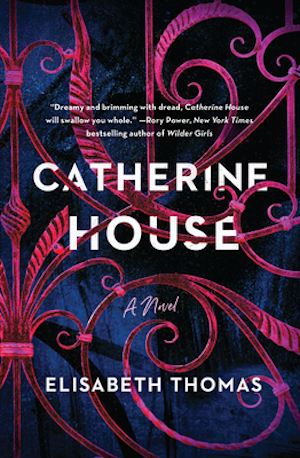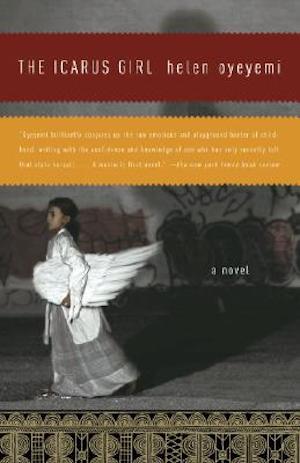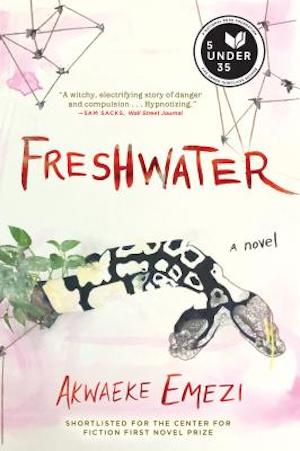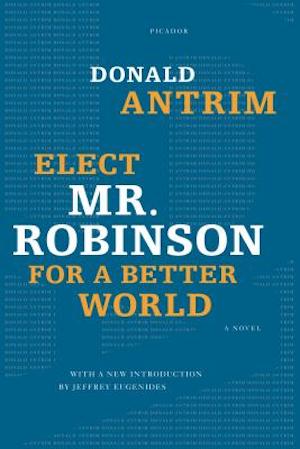There’s a specific kind of feeling I’m always looking for in what I read—that 2 AM, just woke up from a nap that you took at 9 PM which was probably ill advised but it’s too late now and you’re not sure what year it is or what planet you’re on and you can’t see out of your contacts feeling. Sometimes it emerges through a book’s prose style; sometimes through the construction of the main character; sometimes through setting and worldbuilding. But no matter what, when I find it, it usually means I’ve found a new favorite book.
If you too are looking for books to make you feel like you have a low-grade fever or maybe took too much NyQuil, here are five I recommend.
Catherine House by Elisabeth Thomas

Catherine House is a famous—and infamous—college which requires its students to forego all outside contact during their three years of study. Ines Murillo has no problem with that. She’s trying to avoid her past, and can think of nothing better than exchanging her friends and family for a promising future. But Catherine House has mysteries, and there’s a bigger price that Ines might have to pay.
Just out this summer, Catherine House is the dreamy, hazy mix of The Secret History and Never Let Me Go that you’ve been looking for. The speculative elements are pitch-perfect, adding to the almost syrupy atmosphere, one that stretches and compresses and moves with you until the whole world feels distorted, and the 90s setting renders the book timeless, detaching it from contemporary markers that might keep us rooted.
Rating on the feverdream meter: 5/5 meals that you can picture in the background of a still life of a skull
Down the Rabbit Hole by Juan Pablos Villalobos

This novella was translated from its original Spanish, and follows Tochtli, the young son of a drug baron known as “The King,” who wants nothing more than to own a Liberian pygmy hippopotamus. As Tochtli and his father embark on a trip to capture one, Tochtli is forced to watch his deeply isolated world break open.
The star of Down the Rabbit Hole is the voice, painstakingly translated by Rosalind Harvey. Tochtli has a fondness for long words, which he learns from his dictionary, and is focused to the point of obsession on his limited interests. His voice is relentless, specific and oddball and matter of fact, which is incredibly effective in showing us the strangeness and cruelty that are so plentiful in his environment. Tochtli observes his father’s plotting and processes it all with the understanding of a ten year old who has grown up steeped in violence. One one page we hear Tochtli matter-of-factly describe methods of decapitation; on the next he tells us how he adores three-cornered hats. Funny, and surreal, and perfectly understated.
Rating on the feverdream meter: 10/10 lions and tigers, who await the hippos in Tochtli’s menagerie
The Icarus Girl by Helen Oyeyemi

This debut novel from Oyeyemi (Boy, Snow, Bird; Gingerbread) is another told in the voice of a child. It follows an eight year old girl named Jessamy who lives in London with her English father and Nigerian mother. Jessamy feels out of place in both England and Nigeria, but on a trip to the latter, makes a friend she calls TillyTilly. But when TillyTilly follows Jessamy back to London, things turn sour very quickly.
This book takes the classic theme of doubling, as in twins or doppelgangers, and uses it to explore fractures in Jessamy’s biracial identity. Oyeyemi’s prose here is a different voice than one might find in the rest of her bibliography, and is keyed perfectly to the story, open enough to welcome you inside the book before slowly locking the door behind you.
Rating on the feverdream meter: 2/2 girls who are definitely both real
Freshwater by Akwaeke Emezi

Emezi’s debut follows a Nigerian girl named Ada born with “one foot on the other side.” As we follow her from birth through to her traumatic college experience in America and on, we begin to understand that this means Ada has separate selves, and that they may drive her life in a dangerous direction.
Like The Icarus Girl, Freshwater is an examination of the fractured self, and of the conflict we can house within ourselves. Emezi writes with a propulsive power, and that, combined with the book’s non-linear structure, disrupts the reader’s expectations, leaving us all the more beautifully dazed by it.
Rating on the feverdream meter: 1/1 first person plural narrator, which always does the trick for me
Elect Mr. Robinson For A Better World by Donald Antrim

Another novella, this time a sharp satire about a former third grade teacher, Pete Robinson, whose small seaside town has fallen into utterly bizarre chaos (the local school, for instance, has been turned into a factory for producing marine animal talismans). Determined to take back control, Pete runs for mayor, and finds that winning may be more difficult than anticipated.
Told in one go, with no scene or chapter breaks, Elect Mr. Robinson for a Better World completely consumes you, before letting you go with an offhand shrug, as though nothing important really happened at all.
Rating on the feverdream meter: 4/4 cars drawing and quartering the town mayor in the novella’s opening
Rory Power grew up in New England, where she lives and works as a crime fiction editor and story consultant for TV adaptation. She received a Masters in Prose Fiction from the University of East Anglia, and thinks fondly of her time there, partially because she learned a lot but mostly because there were a ton of bunnies on campus. Her novel Burn Our Bodies Down is available from Delacorte.











I nominate “The Unconsoled” by Kazuo Ishiguro. Time and space compress and contract around the protagonist while he makes very dream logic decisions. Also, “number9dream” by David Mitchell is the best literary incarnation of a nightmare I’ve read.
Great list; my TBR pile keeps growing! I’d add Tears of the Trufflepig by Fernando Flores as a fever dream-inducing slipstream brew of a novel.
Man. That kind of feeling is so what I am not looking for when I read. But as the Scotsman said, if we all liked the same things think what a haggis shortage there’d be….
Here’s one that couldn’t fit this category more precisely, by content and name: Samanta Schweblin’s Fever Dream
A couple people including Zin E. Rocklyn recently turned me on to it and I just read it this past week. It’s a short novel, all told in a kind of dreamy dialog between a severely ill woman in a clinic bed and a boy who’s speaking to her mysteriously. Nothing is explained, you’re left to piece it together for yourself. Dark but not exactly horror, not fantasy, not any genre I can recognize. The ending is heartbreaking if you read closely enough to understand what has just happened.
Clare @@@@@ 1: I’ll look for that one. David Mitchell’s Slade House seems like another dark dream.
Okay, definitely Kathe Koja’s “The Cipher,” which absolutely reads like you shouldn’t have had that chili just before bed.
Barefoot in the Head by Brian Aldiss
Gunnerkrigg Court by Tom Siddell is a lot like this. It takes place at the eponymous boarding school, at which each year’s dorm follows a different dream logic (e.g. each student gets an open-sided cubby with a sunken bed, stacked on the inside of a tall tower, so that the kid at the end of the alphabet has to climb a 40-storey ladder every night). The school grounds are an enormous city, part futuristic, part prewar brick, mostly empty. The protagonist is numb from emotional trauma at the start of the story, and a tween, and has seen some bizarre stuff already, so she just accepts things like robots with neuroses, shadows that move on their own, an actual ghost that even looks like a kid in a sheet, and the Minotaur who sublets the basement. Everything has an explanation … eventually. But the people who live at the Court still inhabit a world that is inside, yet divorced from, our own.
Full disclosure: I have stopped reading it; I find the main antagonist to be an annoying ass and a one-trick…coyote.
Try Bunny by Mona Award. It is hypnotic and you’re not sure if the narrator is unreliable or the click of girls she falls in with who all call each other Bunny are telling the truth. It is funny at first, but becomes surreal and a little frightening as the novel progresses.
I second Fever Dream. That one would have a higher score on your scale than Bunny, but I enjoyed Bunny more.
I love these style of books. My first experience with this feeling was reading A Clockwork Orange up in my upstairs high school bedroom on a day with 100+ degree heat. The heat added a sense of claustrophobia to the experience of reading a book with a insular vernacular, excessive violence and a pervading feeling of unreality. I blame that day for my love of books that bring that same feeling back.
Haruki Murakami’s “The Strange Library,” read in a physical edition in which the cover folded out to make reading it a little like peering into a box or down a hallway, was a rather odd experience.
Also, perhaps particular to my own experience, I read Neil Gaiman’s Doctor Who short story “Nothing O’Clock,” at bedtime, fell asleep, and woke up convinced it had been an actual episode of the television show I had seen, and was, over the next few weeks, very confused to discover that none of my friends remembered it.
Two books come to mind when I think of the “feverdream” feeling. The Other Side by A.Kubin and Sebald’s The Rings of Saturn.
Richard Brautigan – Trout Fishing in America, and every other book he wrote
“The sun was like a huge fifty-cent piece that someone had poured kerosene on and then had lit with a match and said, “Here, hold this while I go get a newspaper,” and put the coin in my hand, but never came back.”
Italo Calvino – Invisible Cities
“Cities, like dreams, are made of desires and fears, even if the thread of their discourse is secret, their rules are absurd, their perspectives deceitful, and everything conceals something else.”
Russell Hoban – Kleinzeit, and Riddley Walker
“Its some kynd of thing it aint us but yet its in us. Its looking out thru our eye hoals. May be you dont take no noatis of it only some times. Say you get woak up suddn in the middl of the nite. 1 minim youre a sleap and the nex youre on your feet with a spear in your han. Wel it werent you put that spear in your han it wer that other thing whats looking out thru your eye hoals. It aint you nor it dont even know your name. Its in us lorn and loan and sheltering how it can.”
@Jenny Islander :
I too fell out of Gunnerkrigg Court at some point after reading it assiduously for years, and I’m not even entirely sure why. I don’t think it was Coyote per se, it just stopped grabbing me.
@lastvisibledog:
Amen on Brautigan, also your mention of Riddley Walker makes me think of Iain M Banks’ Feersum Endjin but on reflection I don’t quite think it fits the category.